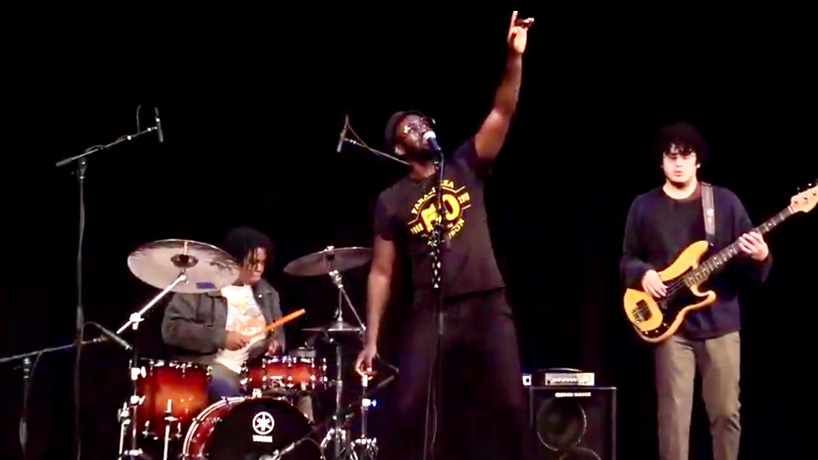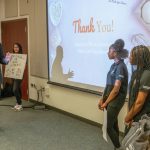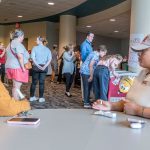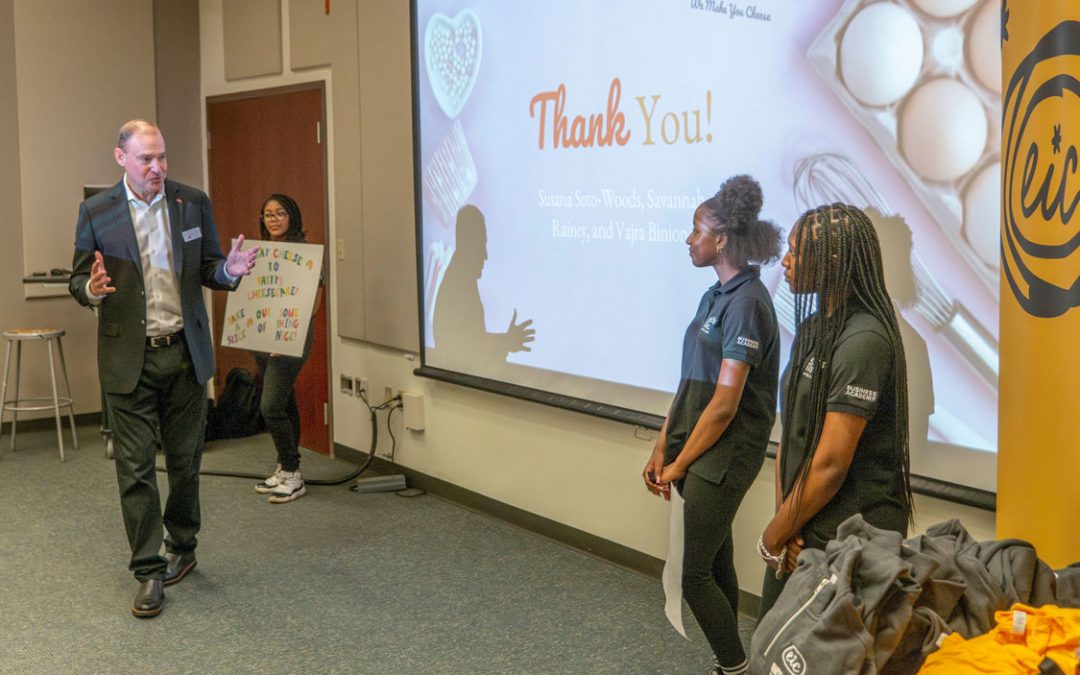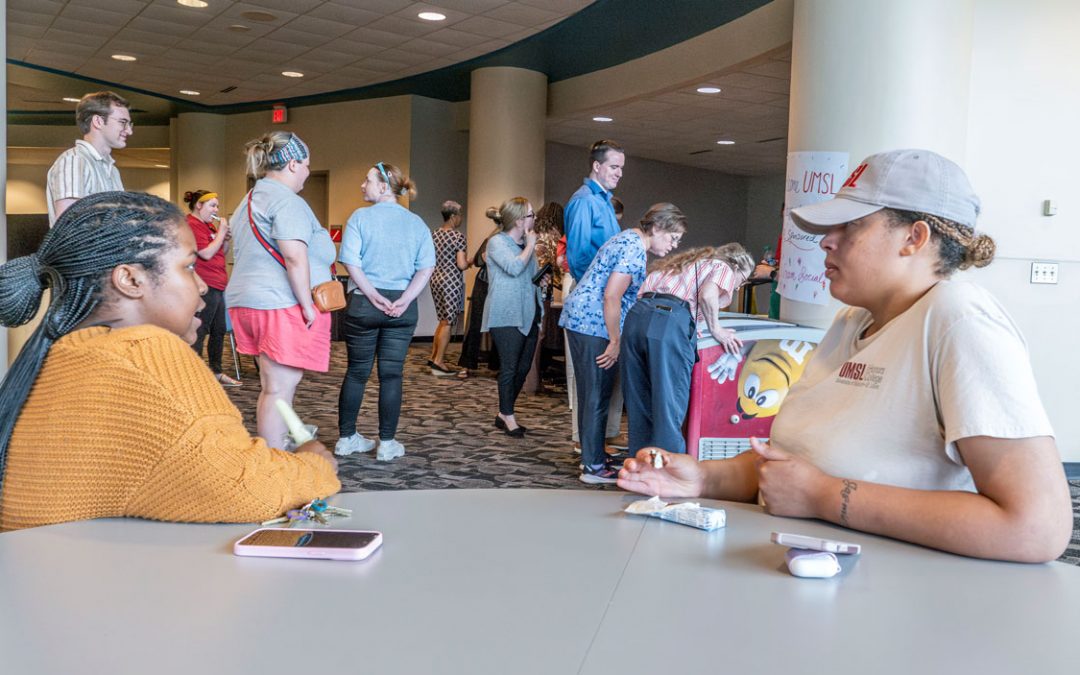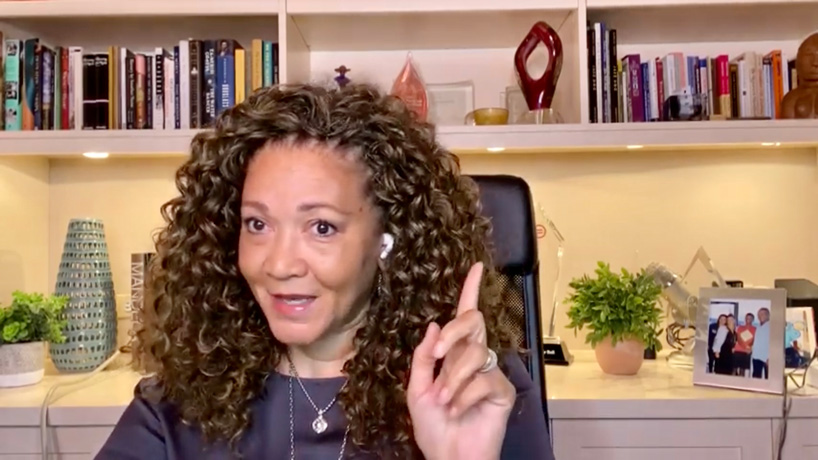
Journalist Michele Norris delivered the keynote address at UMSL’s annual Dr. Martin Luther King Jr. Holiday Observance, a virtual celebration streamed Monday morning on YouTube. (Screenshots by August Jennewein)
The Martin Luther King Jr. Holiday has long been used as an opportunity for Americans to mark racial progress in the country while honoring the work and legacy of the late civil rights icon.
But, this year, it seemed even more important to spend time reflecting on the ways in which the United States still falls short of the hopeful dreams King had for social equality.
America’s divisions have been all too evident over the past 12 months, with a wave of Black Lives Matter protests in response to police violence sweeping across the country throughout the summer and, earlier this month, a mob that included white supremacists storming the U.S. Capitol.
Journalist Michele Norris, a former NPR host who is now the founding director of the Race Card Project, discussed these tumultuous times while also pointing to more hopeful signs of progress as she delivered the keynote address Monday morning during the annual Dr. Martin Luther King Jr. Holiday Observance at the University of Missouri–St. Louis.
“This past summer, America did see real changes,” Norris said in a 30-minute address to an audience that numbered in the hundreds when the virtual event premiered on YouTube. “Confederate statues fell all across the country. Juneteenth became a paid holiday. Juneteenth, in fact became something that Americans had heard of – when slaves were finally and truly emancipated long after Lincoln had actually signed the Emancipation Proclamation. Aunt Jemima and Uncle Ben were retired. All kinds of corporations and universities and even the military began grappling with their records on diversity, forced to explain why their aspirations were so often at odds with actual results.
“The protest that followed the series of police killings this year also showed a certain sea change. They were undeniably diverse. People were placing Black Lives Matter signs and banners on their homes, decals on their cars, placards in front of churches, painting those words on well-traveled streets.”
Students Adeline Ibrahim, Anthony Taylor and Dana Kerns read the winning essays they wrote with their applications for the UMSL Martin Luther King Jr. Scholarship. The $1,000 award recognizes excellence in scholarship and service by UMSL undergraduates. To be considered, students must have at least a 2.5 GPA and be actively participating in community service.
But Norris, following on ideas of her own column in The Washington Post written even before the storming of the capitol, pushed back against the instinct to see this as a moment of national reckoning.
“I suggested that we think hard about that word reckoning, about this supposed reckoning that happened in the year of political debate and pandemic disparities and street protests and proud boys pounding on their chests,” she said. “A reckoning, you see, is not something that we can easily wish into existence. It is an accomplishment. It is a check mark on that to-do list when you actually can say it’s done. It’s a moment when we finally deal with an ugly situation, not the moment when we realize just how foul it is.”
Norris believed she was being realistic when she said that as much as America talks about entering a post-racial phase of its existence, that time remains far in the future.
“We must ask ourselves, while those epiphanies last, will people do more than just acknowledge the scourge of racism?” Norris said. “Will they also commit to the much more important, much more difficult, much more muscular work of actually eradicating it. Because understand this, an epiphany is not the same thing as a reckoning. A sign in the yard will not wave away the anti-black and anti-brown racism that surfaces in housing, transportation, hiring, education, adjudication, who has access to opportunities. Something as simple as who has access to Wi-Fi so they can keep up with classwork while we are all working and learning at home.”
Soul singer Brian Owens, UMSL’s E. Desmond Lee Community Music Artist in Residence, performs during Monday’s virtual Dr. Martin Luther King Jr. Holiday Observance.
She urged people to maintain peace while that hard work continues to be done.
“In an ever-divided country, your generation will have to figure out how to coexist and how to thrive, both as individuals and as a nation, alongside people whose ideas or whose very being might offend you,” Norris said. “We see a lot of people fighting for their ideas and their version of what America should look like. And we are fortunate to live in a country where we can frankly have those battles. But I pray that we can figure out how to spar with each other’s ideologies – not spar physically – but spar with each other’s ideologies, without it becoming violent, because in a year or so, much that was once out of bounds has become normalized. That kind of pugilism can become normalized as well, and that is a very dangerous situation.”
Tanisha Stevens, UMSL’s vice chancellor for diversity, equity and inclusion, welcomed attendees to the virtual celebration, recorded at the Blanche M. Touhill Performing Arts Center.
Marquetta Wise, the community-staff liaison at St. Louis Public Radio | 90.7 KWMU, served as the host for the event, which also featured remarks from Chancellor Kristin Sobolik; essay readings from UMSL’s three Martin Luther King Jr. Scholarship recipients, Dana Kerns, Adeline Ibrahim and Anthony Taylor; and musical performances by UMSL’s E. Desmond Lee Community Music Artist in Residence Brian Owens and others from L.I.F.E. Arts Inc.


